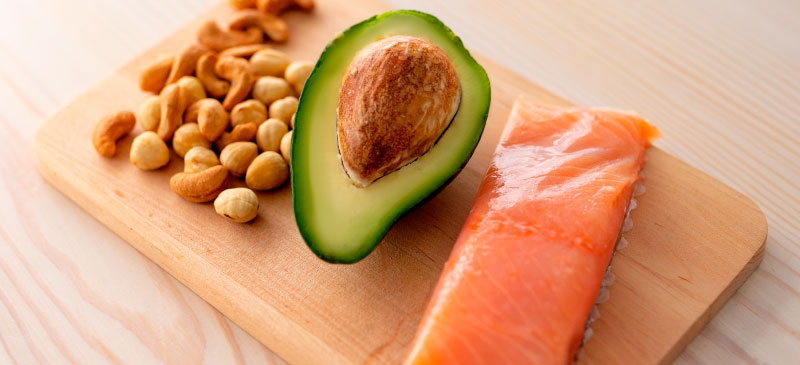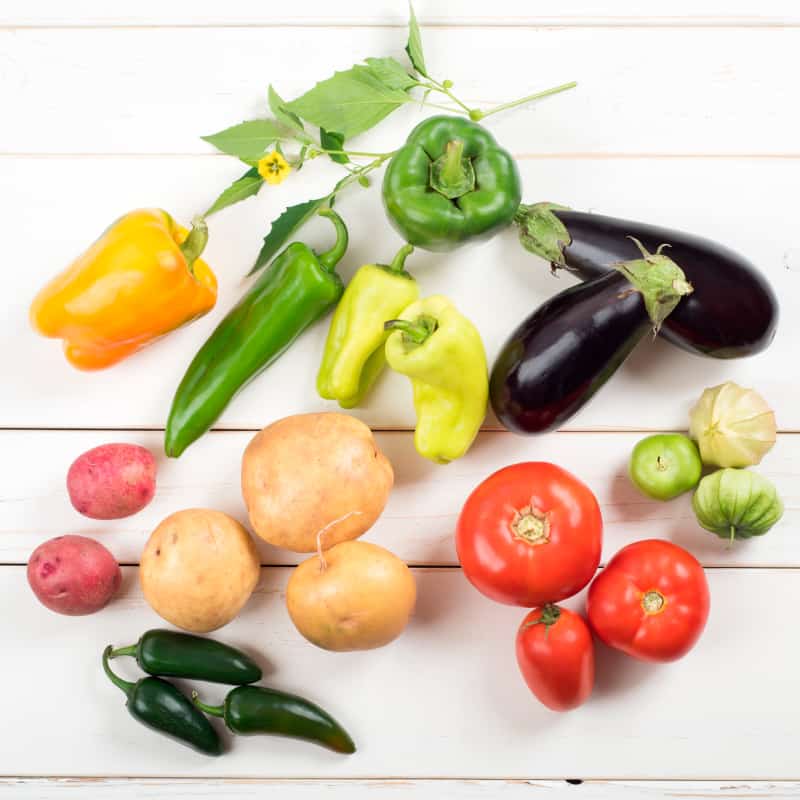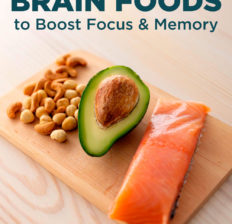This Dr. Axe content is medically reviewed or fact checked to ensure factually accurate information.
With strict editorial sourcing guidelines, we only link to academic research institutions, reputable media sites and, when research is available, medically peer-reviewed studies. Note that the numbers in parentheses (1, 2, etc.) are clickable links to these studies.
The information in our articles is NOT intended to replace a one-on-one relationship with a qualified health care professional and is not intended as medical advice.
This article is based on scientific evidence, written by experts and fact checked by our trained editorial staff. Note that the numbers in parentheses (1, 2, etc.) are clickable links to medically peer-reviewed studies.
Our team includes licensed nutritionists and dietitians, certified health education specialists, as well as certified strength and conditioning specialists, personal trainers and corrective exercise specialists. Our team aims to be not only thorough with its research, but also objective and unbiased.
The information in our articles is NOT intended to replace a one-on-one relationship with a qualified health care professional and is not intended as medical advice.
15 Brain Foods to Boost Focus and Memory
October 3, 2023

While we’ve always known that what we eat affects our bodies and how we look, scientists continue to uncover evidence that what we eat plays a huge role in the health of our brains. Yes, when it comes to staying mentally sharp and focused, eating plenty of brain foods matters, especially for our gray matter.
The gut and the brain are tightly connected, and when we focus on giving our bodies whole, nutritious foods, we help take care of both.
Which foods are best for your brain? Among the top brain-healthy foods are fruits, veggies, oils and even chocolate (yes, chocolate!). There’s something to please everyone!
Related: Can Reduced Brain Activity Boost Longevity?
What Is a Brain Food?
Brain foods are those that are rich in antioxidants, healthy fats, vitamins and minerals. They provide your brain with energy and aid in protecting brain cells, which helps ward off development of brain diseases.
How exactly do healthy foods for brain function aid in mental health? Once way is by supporting gut function and a healthy inflammation response.
A number of important hormones and neurotransmitters are created in the gut and are then able to enter the brain, which influences cognitive abilities, such as understanding and processing new information, plus memory and concentration. This means that a well-functioning gut is essential for sending the brain the kind of chemical signals that keep help us functioning at our best.
A poor-quality diet can cause our bodies to release more inflammatory cytokines, which studies show can contribute to inflammation that can wind up damaging the brain.
While inflammation helps protect us against illnesses and repairs the body when you do something like cut yourself, chronic inflammation is a different animal. It’s been linked to a number of mental/cognitive conditions, including dementia, cognitive impairment and Alzheimer’s disease, among other age-related issues.
Top 15 Brain Foods
1. Avocados
While avocados often get a bad rep because of their high fat content, it’s important to note that these green powerhouses are packed with monounsaturated fats or the “good” kind, which have been shown to lower rates of cognitive decline and keep blood sugar levels steady.
Containing both vitamin K and folate, avocados help prevent blood clots in the brain (protecting against stroke), as well as help improve brain functions related to memory and concentration.
They’re also rich in vitamin B and vitamin C, which aren’t stored in your body and need to be replenished daily. Plus, they have the highest protein and lowest sugar content of any fruit. Not too shabby!
Avocados’ creamy texture makes them a smart addition to smoothies and a replacement for fats in baked goods, or try these brain foods in one of these 50 amazing and easy avocado recipes.
2. Beets
Beets are root vegetables and some of the most nutritious foods for the brain that you can eat considering they help reduce inflammation, are high in cancer-protecting antioxidants and help rid your blood of toxins.
The natural nitrates in beets actually boost blood flow to the brain, helping with mental performance. Plus, during tough workouts, beets actually help boost energy and performance levels. Try them in this borscht recipe.
3. Blueberries + Other Berries
Proving that great things do come in small packages, blueberries and other berries (like strawberries, blackberries, raspberries, etc.) are fruits that experts recommend consuming daily. That’s because they’ve got so many great benefits while tasting like an all-natural candy!
For starters, blueberries are one of the highest antioxidant-rich foods known to man, including vitamin C and vitamin K and fiber. Because of their high levels of gallic acid, blueberries are especially good at protecting our brains from degeneration, cognitive decline and stress.
Get your daily dose of brain berries in an omega blueberry smoothie or in a healthy blueberry cobbler.
4. Bone Broth
Bone broth is the ultimate food for healing your gut and, in turn, helps heal your brain. This ancient food is full of benefits, ranging from boosting your immune system to overcoming leaky gut, improving joint health and overcoming food allergies.
Its high levels of collagen help reduce intestinal inflammation, and healing amino acids like proline and glycine keep your immune system functioning properly and help improve memory.
Bone broth is what I prescribe most frequently to my patients because it truly helps heal your body from the inside out. You’ll also be surprised at how simple and economical it is to make at home with my beef bone broth recipe.
5. Broccoli + Other Cruciferous Veggies
Your mom got it right when she told you to eat your broccoli. Along with related veggies like cauliflower, kale and Brussels sprouts, broccoli is one of the best brain-healthy foods out there thanks to its high levels of vitamin K and choline, which can help keep your memory sharp.
It’s also loaded with vitamin C — in fact, just one cup provides you with 150 percent of your recommended daily intake. Additionally it contains a number of phytonutrients that protect brain cells against oxidative stress.
Broccoli is high in fiber too, meaning that you’ll feel full quickly. If you’ve only chowed down on overcooked, tasteless broccoli, you’ll love my crockpot beef and broccoli, creamy broccoli soup and broccoli pesto dip — they’ll turn you into a broccoli lover fast!
6. Celery
For a vegetable with such few calories (just 16 per cup!), celery sure does offer a lot of benefits. Its high levels of antioxidants and polysaccharides act as natural anti-inflammatories and can help alleviate symptoms related to inflammation, like joint pain and irritable bowel syndrome.
Because it’s so nutrient-dense — packing loads of vitamins, minerals and nutrients with very little calories — it’s a great snack option if you’re looking to shed pounds. While we often eat celery stalks, don’t skip the seeds and leaves. Both provide extra benefits and taste great in things like stir fries and soups.
Not sure where to begin with eating more celery? Try my easy ants on a log or refreshing super hydrator juice recipes.
7. Coconut Oil
With so many coconut oil uses, there’s almost nothing that coconut oil can’t help. When it comes to your brain, it can help suppress cells that are responsible for inflammation. It may also help with memory loss as you age and fight bad bacteria that hang out in your gut.
Coconut oil and related MTC oil are also two of the most popular fats for people following the ketogenic diet, which research suggests may offer benefits related to reduced Alzheimer’s risk due to ketone bodies having a neuroprotective impact on aging brain cells..
Get your dose of coconut oil in this coconut crust pizza. Real coconut milk and coconut flakes also provide healthy fats and even some fiber for gut support, too.
8. Dark Chocolate
Not all chocolate is created equal. In fact, dark chocolate can actually be very good for you!
Chocolate is chock-full of flavonols, which have antioxidant and anti-inflammatory properties. Studies show cocoa can increase cerebral blood flow and cerebral blood oxygenation — plus it can help lower blood pressure and oxidative stress in the brain and heart.
But don’t go wild munching on Hershey’s Kisses just yet. Most of the chocolate you see on supermarket shelves is highly processed and is not considered a great food for the brain.
The rule of thumb is the darker the chocolate, the more perks it offers.
Skip milk and white chocolates, and opt for a minimally processed dark chocolate with at least 70 percent of cocoa. This ensures you’ll get your cocoa fix and its brain benefits!
Satisfy your sweet tooth with these dark chocolate almond butter cookies or chocolate-covered berries.
9. Egg Yolks
On the nutritional naughty list for years, egg yolks are finally experiencing their well-deserved day in the sun. If you’ve been having only egg whites, the yolk’s on you.
Yolks contain large amounts of choline, which helps in fetal brain development for pregnant women. It also breaks down bethane, a chemical that produces hormones related to feelings of well-being.
If you’ve kept away from consuming eggs whole because of cholesterol concerns, there’s good news. Studies show that eating eggs typically has no effect on the cholesterol levels of healthy adults and might, in fact, help raise good cholesterol levels.
It’s also one of the most inexpensive sources of protein out there. Just be sure you buy organic, free-range eggs.
Need some egg-spiration? I love these baked eggs and spinach and breakfast salmon egg bake. For even more ideas, try whipping up one of these delicious egg recipes.
10. Extra Virgin Olive Oil
Real extra virgin olive oil (EVOO) is among the top recommended brain foods due to powerful antioxidants that it provides known as polyphenols, as well as healthy monounsaturated fats. It’s a staple ingredient in the Mediterranean diet and the related MIND diet, which studies show are two eating patterns that are associated with cognitive benefits among older adults.
Including EVOO in your diet may not only improve learning and memory, but also reverse the age- and disease-related changes. The oil also helps fight against ADDLs, proteins that are toxic to the brain and induce Alzheimer’s.
As great as extra virgin olive oil is, remember that it’s not a good option for cooking, as it hydrogenizes and begins decomposing at high temperatures. The best way to get your fill is by having it cold or at room temperature.
I love extra virgin olive oil as part of zucchini noodles with marinara sauce and quinoa tabouli salad.
11. Green Leafy Vegetables
It turns out that Popeye was onto something with his spinach obsession. Getting regular helpings of leafy green brain foods — like kale, Swiss chard and romaine lettuce — can help keep dementia at bay according to new research.
In the study, which evaluated the eating habits and mental ability of more than 950 older adults for an average of five years, those adults who ate a serving of leafy green veggies once or twice a day experienced slower mental deterioration than those who ate no vegetables, even when factors like age, education and family history of dementia were factored in.
When it comes to brain power, greens should be on your plate (and cover a lot of that plate) every meal.
“Leafy greens are a great base. You swap out a lot of the empty carbohydrates you get from things like pastas or breads, and you can use some leafy greens,” says psychiatrist Drew Ramsey, MD, author of The Happiness Diet and Eat Complete: The 21 Nutrients That Fuel Brainpower, Boost Weight Loss, and Transform Your Health. “Again, just lots of nutrient density.”
Green leafy vegetables are also loaded with vitamins A and K (just one cup of kale has more than 684 percent of your recommended daily serving!), which help fight inflammation and keep bones strong. Reap the benefits of these brain foods with a mango walnut spinach salad or kale chips.
12. Rosemary + Other Herbs
We already knew that rosemary oil has a variety of benefits, but did you know that the herb does, too?
Carnosic acid, one of the main ingredients in rosemary, helps protect the brain from neurodegeneration. It does this by protecting the brain against chemical free radicals, which are linked to neurodegeneration, Alzheimer’s, strokes and normal aging in the brain.
It also helps protect eyesight from deteriorating thanks to its high levels of antioxidants and anti-inflammatory properties. Other herbs with similar levels of antioxidants include basil, peppermint, sage, parsley and cilantro.
Get your servings of fresh rosemary with these sweet potato rosemary fries and maple-glazed rosemary carrots.
13. Salmon + Other Oily Fish
If you like fish, get excited, because salmon is one of the most nutritious brain foods out there! It’s packed with omega-3 fatty acids to help keep your brain running smoothly — goodbye, brain fog — and improve memory.
If you have kids, feeding them oily fish, such as sardines or trout, may help prevent ADHD by improving their focus. These same fatty acids may also help prevent the development of Alzheimer’s and dementia — not bad for a four-ounce serving of fish!
Please note that these benefits are for Alaskan wild-caught salmon — farm-raised and regular wild-caught fish can be filled with mercury and toxins. Enjoy it in these salmon cakes or homemade smoked salmon sushi bowl.
14. Turmeric
Isn’t it great when a simple spice has amazing benefits? That’s the case with turmeric, an ancient root that’s been used for its healing properties throughout history.
Thanks to curcumin, a chemical compound found in turmeric, the spice is actually one of the most powerful (and natural) anti-inflammatory agents.
Turmeric also helps boost antioxidant levels and keep your immune system healthy, while also improving your brain’s oxygen intake, keeping you alert and able to process information. Talk about a super spice!
Start your day with this brain food by consuming turmeric eggs and turmeric tea. For even more benefits, combine turmeric with black pepper to help improve absorption and with other spices like ginger and cinnamon for digestive and metabolic support.
15. Walnuts + Other Nuts
It turns out that walnuts can keep you from going nuts. Just munching on a few walnuts a day may help improve your cognitive health.
Their high levels of antioxidants, vitamins and minerals also improve mental alertness. The vitamin E found in these nuts may also help protect brain cells and ward off Alzheimer’s.
Go ahead, grab a handful of walnuts and other nuts, such as almonds, pistachios or cashews — or try this brain-boosting smoothie recipe!
Related: Are Eggs Dairy? + What You Need to Know About the Eggs You Eat
Brain Supplements
Among the most commonly used supplements to help improve cognitive function and stave off age-related mental decline — such as learning, concentration, memory and creativity — are those that fall into the category of “nootropics.”
Nootropics are considered non-addictive “smart drugs” or substances that help the brain work more efficiently. They include brain-boosting supplements made with ingredients like:
- caffeine
- adaptogen herbs
- medicinal and adaptogenic mushrooms
- vitamin B12
- ginseng
- omega-3 fish oil
- certain amino acids
If you’re looking for an extra “edge” and a way to compliment a healthy diet full of brain foods, some examples of popular nootropics for brain support to try include:
- Ginseng
- Gingko balboa
- Medicinal mushrooms, such as chaga, cordyceps and reishi
- Caffeine, such as from coffee or green tea extract
- Fish oil, including omega-3 fatty acids like DHA
- Creatine
- Alpha GPC
- Bacopa monnieri
- Cat’s claw extract
- Artichoke leaf extract
- Forskolin
- Rhodiola rosea root
- Acetyl-L-carnitine
- Ashwagandha
- Astragalus
- Mucuna prurien extract
- Taurine
- L-theanine
- Tyrosine
- Phenylalanine
- Theobromine
- Choline
Conclusion
- What foods are true brain foods? Some of the top foods for brain health include oily fish, eggs, nuts, leafy greens, berries, broccoli and other veggies, avocado, and olive or coconut oil.
- These nutrient-packed brain foods fight disease and protect brain cells by providing antioxidants, vitamins and minerals, which can aid in memory, concentration, a positive mood and a better “gut-brain-connection.”
- Brain-boosting foods may also reduce your risk for Alzheimer’s, dementia, depression and other mental health conditions — plus most brain foods support your immune and digestive systems too.











